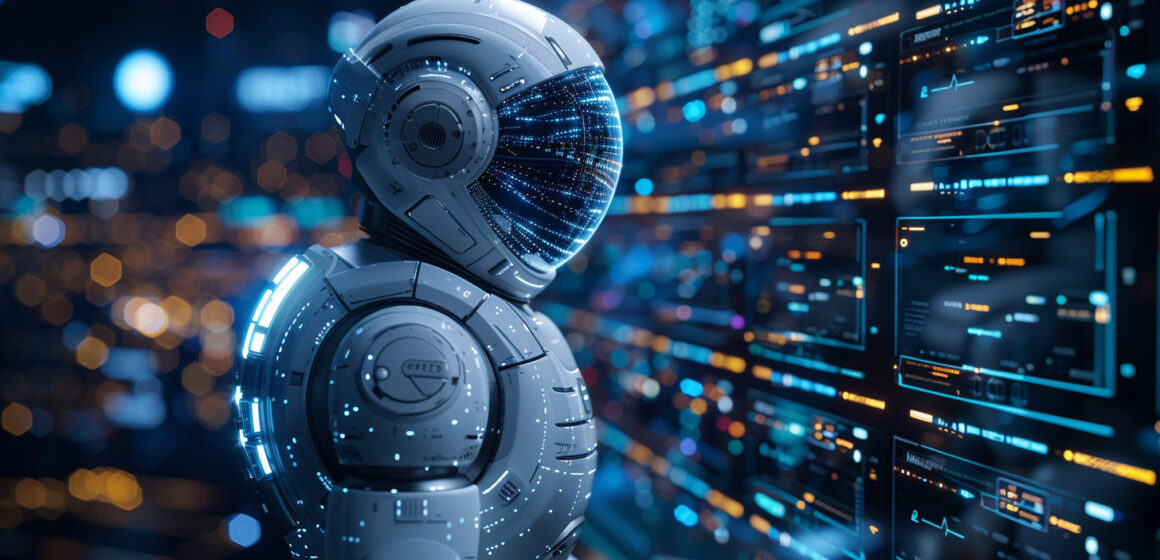Introduction
Artificial Intelligence (AI) has transitioned from being a futuristic concept to a vital part of our daily lives. From virtual assistants to self-driving cars, AI is revolutionizing how we live, work, and interact with technology. As AI continues to advance, its presence in everyday applications is becoming more seamless and indispensable. In this blog, we will explore how AI is integrated into various aspects of our lives, its benefits, challenges, and what the future holds for this transformative technology.
AI in Smart Homes
One of the most common places where AI is making an impact is in our homes. Smart home devices such as Amazon Alexa, Google Assistant, and Apple’s Siri use AI to recognize voice commands and automate household tasks.
Smart Assistants
Virtual assistants can control smart home devices, provide weather updates, play music, and even schedule appointments. They use natural language processing (NLP) and machine learning to understand and anticipate user preferences, making interactions more intuitive and personalized.
Smart Appliances
AI-powered refrigerators, thermostats, and security systems are becoming increasingly popular. Smart thermostats like Nest learn user habits and adjust temperature settings accordingly, optimizing energy consumption and reducing costs.
AI in Healthcare
AI is playing a crucial role in transforming the healthcare industry by improving diagnostics, personalizing treatment plans, and streamlining administrative tasks.
Medical Diagnostics
AI-powered diagnostic tools are helping doctors detect diseases such as cancer and Alzheimer’s at an early stage. Machine learning algorithms analyze medical images, lab results, and patient histories to provide accurate diagnoses.
Personalized Treatment Plans
AI helps create customized treatment plans based on a patient’s genetic profile and medical history. This approach leads to better treatment outcomes and fewer adverse reactions to medications.
AI in Education
AI is reshaping education by enhancing learning experiences, automating administrative tasks, and personalizing student learning paths.
Adaptive Learning Platforms
Platforms like Duolingo and Coursera use AI to tailor courses according to individual learning styles and progress. This adaptive approach makes education more engaging and effective.
AI Tutors
AI-driven chatbots and virtual tutors assist students with homework, provide explanations, and offer personalized feedback, ensuring continuous support beyond traditional classroom settings.
AI in Transportation
The transportation sector is one of the biggest beneficiaries of AI technology. From self-driving cars to intelligent traffic management systems, AI is making transportation safer and more efficient.
Autonomous Vehicles
Companies like Tesla and Waymo are pioneering self-driving technology, reducing human errors and making roads safer. These vehicles use AI to analyze traffic patterns, recognize obstacles, and make real-time driving decisions.
Smart Traffic Management
AI-powered traffic management systems analyze data from cameras and sensors to optimize traffic flow, reduce congestion, and minimize accidents.
AI in Business and Marketing
Businesses are leveraging AI to improve customer service, optimize marketing campaigns, and enhance decision-making processes.
Chatbots and Virtual Assistants
AI-powered chatbots provide 24/7 customer support, answer queries, and assist users in making purchases, leading to improved customer satisfaction.
Predictive Analytics
AI analyzes consumer behavior and trends to help businesses make data-driven decisions. This enables companies to create targeted marketing campaigns and improve sales.
Ethical Considerations and Challenges
Despite its many advantages, AI also presents ethical and societal challenges.
Privacy Concerns
AI relies on vast amounts of data, raising concerns about user privacy and data security. It is crucial to implement robust regulations to protect sensitive information.
Job Displacement
Automation and AI-driven solutions may lead to job losses in certain sectors. However, they also create new opportunities, emphasizing the need for reskilling and upskilling programs.
The Future of AI
As AI continues to evolve, its applications will expand into new domains, making life more convenient and efficient. Ethical AI development, transparency, and human oversight will be essential to ensure that AI benefits society as a whole.
Conclusion
AI is no longer a distant future concept; it is a present-day reality shaping how we live and interact with technology. From smart homes to healthcare and transportation, AI is transforming industries and improving lives. While challenges exist, the potential of AI is limitless, and its responsible development will determine the future of innovation and progress.


Leave a Reply